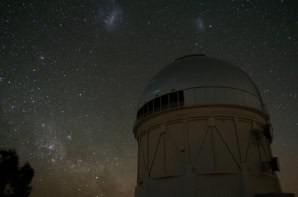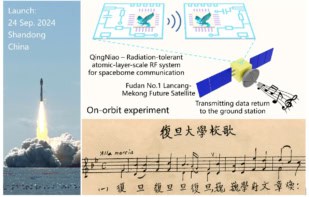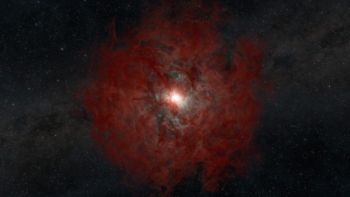John Barrow, the Cambridge University cosmologist, has won this year's Templeton Prize for progress in science and religion. The prize, worth £795,000, is given by the Wall Street financier Sir John Templeton for "progress toward research or discoveries about spiritual realities". Barrow, 53, is credited by the foundation for creating "new perspectives on questions of ultimate concern to science and religion" through his writings about the nature of human understanding and the relationship between life and the universe.

Barrow first came to attention in 1986 when he and Frank Tipler wrote The Anthropic Cosmological Principle. The book looks at the impact on science, history, philosophy, and religion of the anthropic principle, which states that the observable universe has to be as it is otherwise we would not be able to observe it. The foundation said that the book has become “an essential work for those who explore the deep questions at the interface of science and religion”.
It also praised Barrow for “having used insights from mathematics, physics, and astronomy to set out wide-ranging views that challenge scientists and theologians to cross the boundaries of their disciplines if they are to fully realize what they may or may not understand about how time, space, and matter began, the behaviour of the universe (or, perhaps, “multiverses”), and where it is all headed, if anywhere.”
A hugely prolific author, Barrow has so far written over 400 scientific papers and some 17 popular-science books that have been translated into 27 languages. His other books cover topics as wide-ranging as the nature of mathematics (Pi in the Sky, 1992), the links between the universe and human aesthetic appreciation (The Artful Universe, 1995) and how the universe is characterized by what cannot be known about it (Impossibility, 1998). Barrow also wrote an award-winning play Infinites that was performed in Milan in 2002.
“Many of the deepest and most engaging questions about the nature of the universe have their origins in our purely religious quest for meaning”, Barrow said in remarks prepared for a news conference in New York yesterday. “The concept of a lawful universe with order that can be understood and relied upon emerged largely out of religious beliefs about the nature of God.”
He added that astronomy had “breathed new life” into religious questions. “Our scientific picture of the universe has revealed time and again how blinkered and conservative our outlook has often been, how self-serving our interim picture of the universe, how mundane our expectations, and how parochial our attempts to find or deny the links between scientific and religious approaches to the nature of the universe,” he said.
Born in London in 1952, Barrow studied mathematics at the University of Durham and then did a DPhil in cosmology at Oxford University under the late Denis Sciama. Following spells at Berkeley and back at Oxford, he moved to the University of Sussex in 1989, serving as director of its Astronomy Centre from 1995. Four years later he moved to the Department of Applied Mathematics and Theoretical Physics at Cambridge University, where he has also been director of the Millennium Mathematics Projects, which seeks to get young people interested in maths.
Other physists to have won the Templeton Prize include Charles Townes (2005), George Ellis (2004), John Polkinghorne (2002), Freeman Dyson (2000), Ian Barbour (1999) and Paul Davies (1995).



